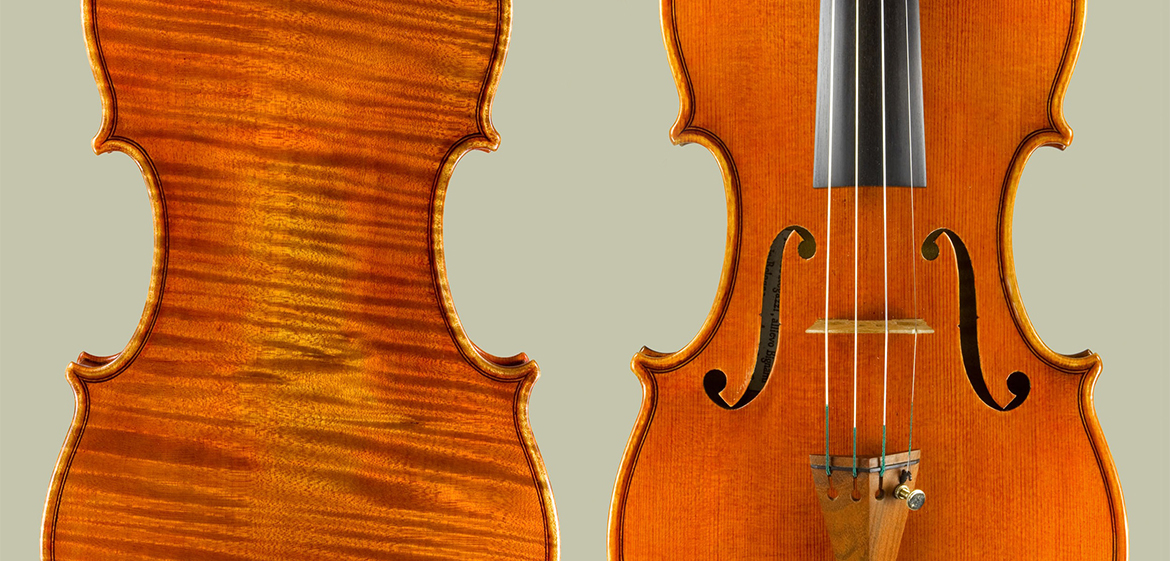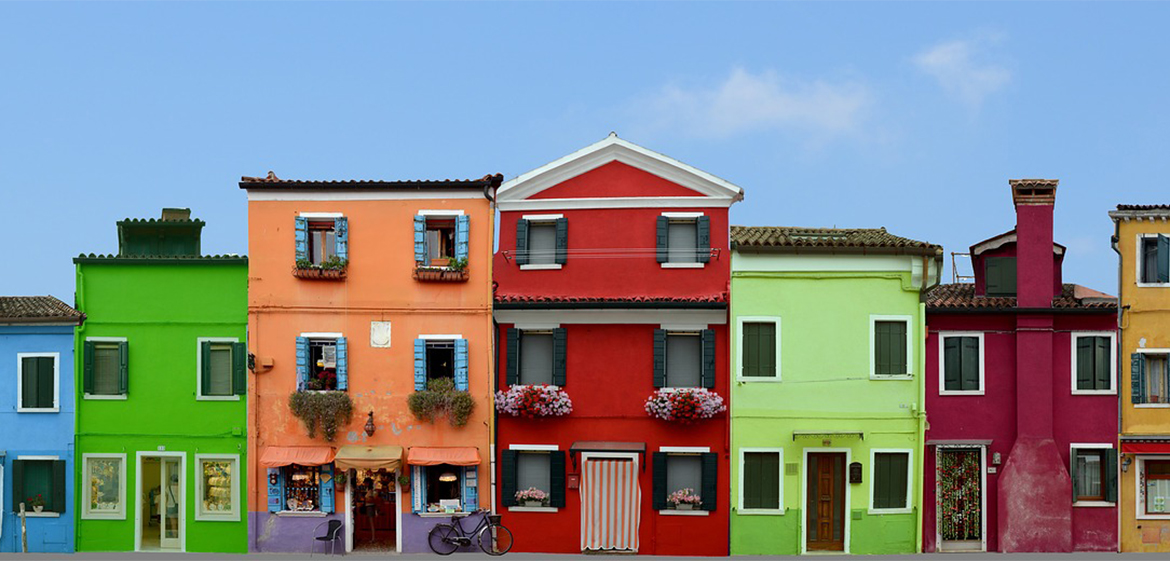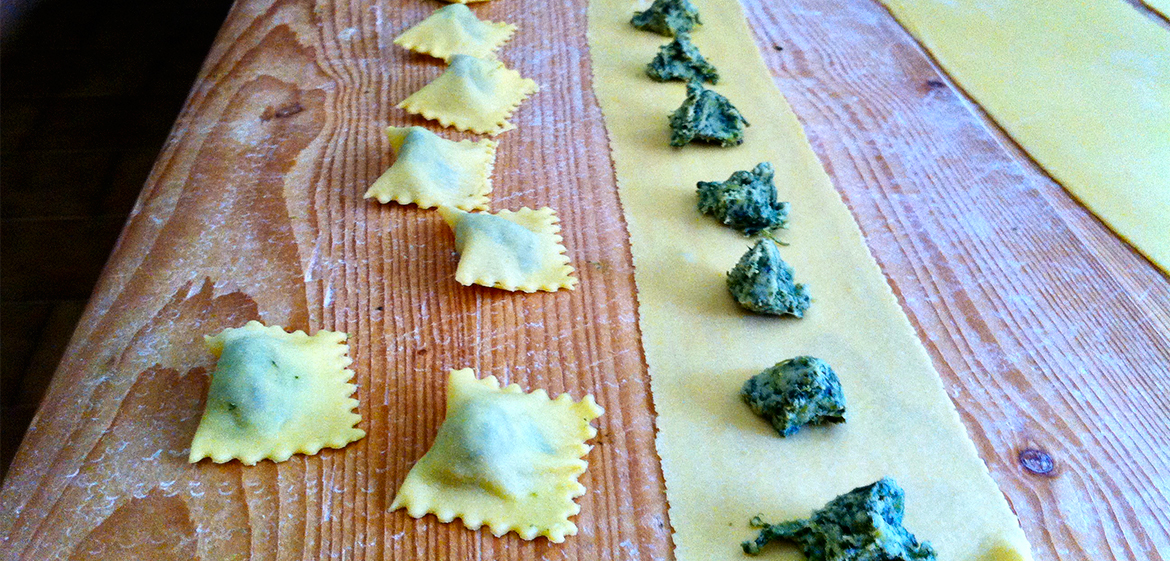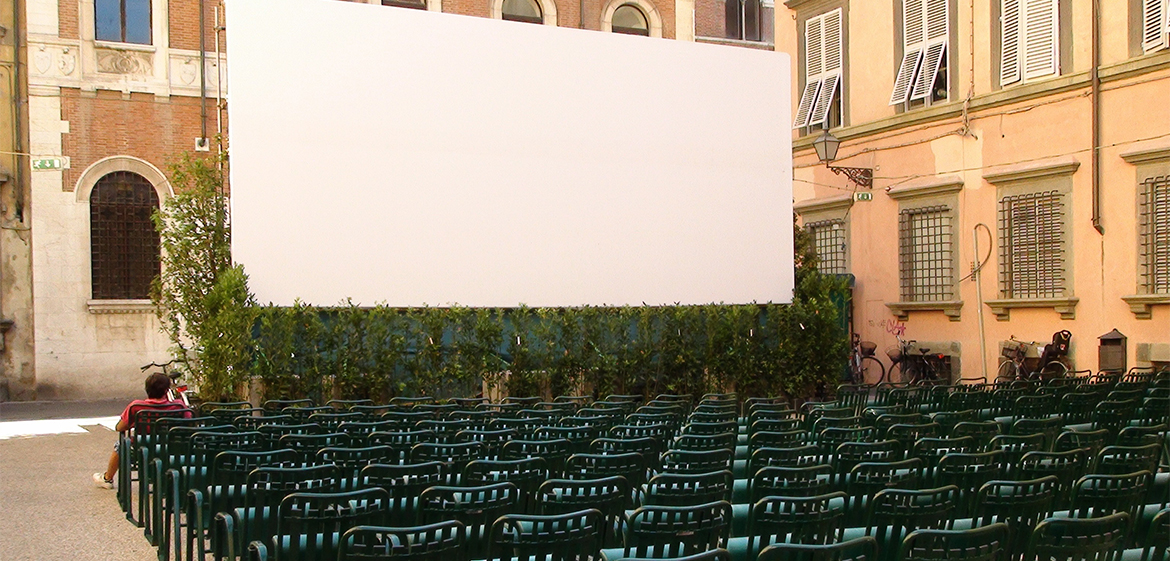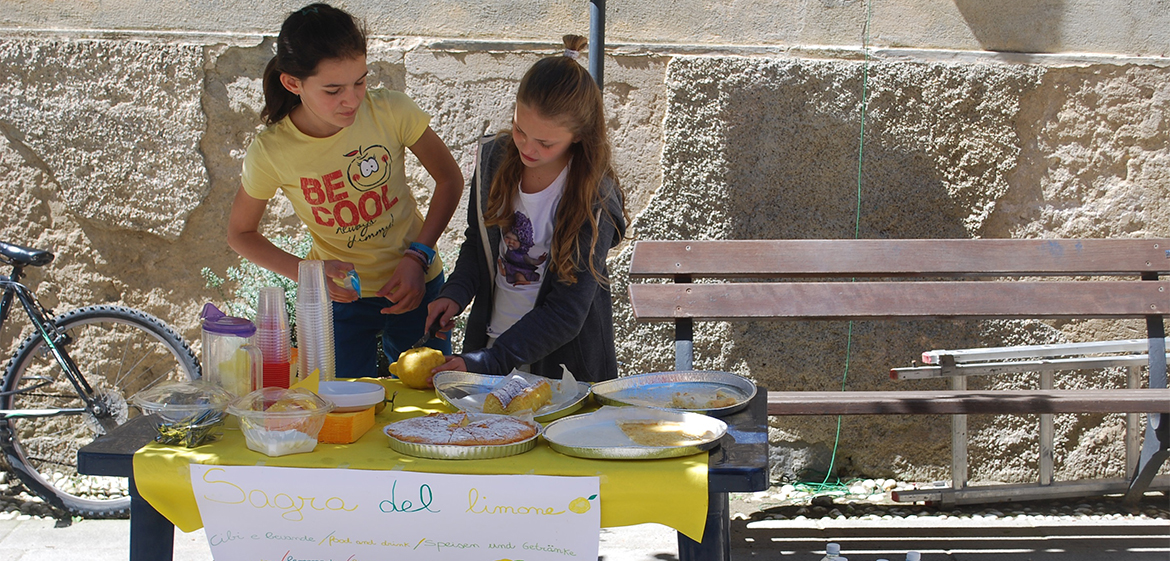The main goal of the Italian department at Smith College is to offer a program of study that provides opportunities for students to acquire both proficiency in Italian and a good appreciation of Italy’s rich cultural tradition. All members of the Italian department are seriously committed to the idea that learning a foreign language is an inherent part of an undergraduate education. We are convinced that if we teach our students a language within a cultural context, we are broadening their minds and opening them up to the possibility of a variety of interpretations of life. We feel that this will assure them access to Italy's rich cultural offerings in literature, in art, and in music, to name just a few.
Announcements
Italian Placement Exam
This test is open to all students who have had preparatory training in Italian. Students who took the Italian AP exam need to take the placement as well, no matter what their AP score. If you have missed the most recent deadline, contact our language coordinator Maria Succi-Hempstead, msuccihe@smith.edu.
Prize Winners in Italian Studies
Congratulations to the 2022–23 prize winners in Italian studies: The Michele Cantarella Memorial “Dante Prize” for the best essays in Italian on any aspect of The Divine Comedy or Boccaccio’s Decameron went to Sophie Jones, Anna Tirney-Fife and Charlotte Garner. The Anacleta Vezzetti Prize for the best pieces of writing in Italian on any aspect of the culture of Italy went to Anna Tierney-Fife and Marietta Mallon.
We expect our students to develop the following capacities:
Linguistic Competence: To learn and master the Italian language and culture in the native speaker’s context. This means to develop, construct and perfect an explicit and implicit linguistic system consisting of a variety of components that interact in all the different aspects of language use (speaking, writing, reading, listening).
Cultural Competence: To acquire basic knowledge of some central aspects of Italian and Italophone culture including history, politics, geography, literature, music, cinema, design and visual arts, as well as sociocultural practices, such as private and public spaces, emigration and immigration, colonialism, gender issues, food and culinary traditions. To develop a comparative and multifaceted approach to Italian culture that views it as part of the Mediterranean cultural history.
Transcultural Competence: To develop and further “transcultural competence," that is, the ability to reflect on the world and oneself through the lens of another language and culture. To enable students to establish relevant, critical connections between Italian culture, their own culture and other academic fields, within the framework of contemporary intercultural society. To make them reflect on the processes and the challenges faced by any act of translation between languages.
Critical and Analytical Thinking: To become sophisticated readers of texts whether literary or not. To show the ability to sustain an argument and conduct appropriate in-depth research. To develop a practical familiarity with appropriate critical resources written both in English and Italian and cite them according to academic conventions.
Global Citizenship: Through study abroad and internships in Italy, to learn how to become global citizens and help build cosmopolitan communities. To learn to value and creatively include diversity in spite of the challenges it represents to community building. To be equipped with the competence required to live in our increasingly more complex 21st-century world.
Advisers 2020-21
Anna Botta and Maria Succi-Hempstead
Italian Studies majors are expected to achieve competence in both written and spoken Italian. Participation in Smith in Florence is not required but it is strongly recommended.
Requirements
The requirement for the major includes the basis, plus 10 semester courses.
Basis
- ITL 110y or ITL 111 (ITL 135 highly recommended)
Compulsory Courses
- ITL 220*
- ITL 250
- ITL 252 (on campus) or 251 (offered only in Florence)
- ITL 332 (Dante) or ITL 334 (Boccaccio)
- One senior seminar normally taken during the senior year
* Students arriving at Smith with previous knowledge of the language can be placed out of one or all of these courses. They still need to take 10 courses to complete the major.
The rest of the courses can be chosen from the following:
FYS 161 or FYS 185 and ITL 200/300 level courses.
TWO CREDIT and S/U COURSES:
235 counts toward the major only if taken twice (4 credits) or combined with ITL 275.
Normally, S/U courses cannot be counted towards the major. Except for our S/U courses ITL 200 and ITL 205 that can be combined as a 4-credit curse towards the major.
Any course taught in the Study Abroad in Florence Program such as:
- Sustainable Food
- Costume, Fashion, Arts & Crafts
- Art History of the Italian Renaissance
- Migration in Contemporary Italy
- Contemporary Italian Social History
- Approved courses to be taken at the University of Florence
- Yearlong internship in Early Childhood Education in Pistoia (equivalent to one 4-credit course)
Up to two (2) courses in English or Italian may be taken in other Smith departments/programs or in the Five Colleges. These courses will be chosen in accordance with the interest of the student and with the approval of the major adviser. Only courses whose main focus is on Italian culture will count for the Italian studies major. Relevant departments include, but are not limited to: art history, comparative literature, film studies, classics, education, history, international relations, linguistics, religion, government, American studies, music and philosophy.
All courses taught by Italian department faculty members outside the Italian department will also fulfill the major requirement (for instance courses in CLT, FLS or FYS) prior approval of the department is required.
Students considering graduate school in Italian studies are strongly encouraged to take ITL 299 and CLT 300.
Advisers
Members of the Department
A minor in Italian studies offers the student the opportunity to acquire the basic skills and reasonable knowledge of the Italian language as well as an overview of Italian culture. Furthermore, it offers students returning from study abroad the possibility to continue with Italian.
Requirements
Six semester courses in addition to the basis
Basis
- ITL 110Y or ITL 111 (ITL 135 highly recommended)
Compulsory Courses
- ITL 220*
- ITL 245 or ITL 250 or 251 or 252
- One 300-level course taught in the Italian Department at Smith College
The rest of the courses can be chosen from the following: FYS 161 or FYS 185 and 200/300-level courses taught in the Department of Italian Studies. Courses taken during the Study Abroad in Florence Program not included in the requirements for the minor will count if taught at the Smith Center but need prior adviser's approval if taken at the University of Florence.
TWO CREDIT and S/U COURSES:
235 counts toward the major only if taken twice (4 credits) or combined with ITL 275.
Normally, S/U courses cannot be counted towards the minor. Except for our S/U courses ITL 200 and ITL 205 that can be combined as a 4-credit curse towards the major.
* Students arriving at Smith with previous knowledge of the language can be placed out of one or all of these courses. They still need to take six (6) approved courses to complete the minor.
An Italian studies and Italian language and literature major who desires to conduct independent research on a specific aspect of Italian literature or culture during her senior year is eligible to apply for the honors program, either at the completion of the second semester of her junior year or before the end of the second week of classes in September of her senior year.
Normally, a student who applies to do honors work must have a 3.5 GPA in her major. Honors students work closely with a faculty adviser to conceptualize and carry out study that culminates in a thesis, written in Italian, of about 50 to 60 pages or an equivalent project; this work is done as ITL 430d (full year, 8 credits). ITL 430d may substitute for one of the 300-level Italian courses required to complete the ITS or ITL major; however, it cannot substitute the senior seminar or ITL 332/334.
Honors Exam and Defense
During the reading/exam period following the second semester of her senior year, the honors candidate will take an oral examination based on her thesis and on the material covered in the classes she has taken for her major. The thesis defense will be a short presentation by the student (no longer than 10 to 15 minutes) followed by a question and answer period. Sample questions will be provided to the candidate a week before the exam. The oral exam and the defense will be conducted in Italian. They will count as 20 percent of the final honors evaluation. The written thesis will count 50 percent. The grades in the major are 30 percent.
Please check the course catalog for up-to-date information. You can also see the Five College course schedule.
Credit is not granted for the first semester only of our introductory language course ITL 110Y. No satisfactory/unsatisfactory grades allowed in Italian language courses with the only exception of ITL 111 which can be taken S/U ONLY by seniors.
ITL 110Y Elementary Italian
One-year course that covers the basics of Italian language and culture and allows students to enroll in ITL 220 the following year. Preference given to first-year students. Three class meetings per week plus required weekly multimedia work and a discussion session which meets outside class time. Enrollment limited to 20 per section. Students entering in the spring need permission of the department and must take a placement exam. In the second semester, students may change sections only with permission of the instructors. Course may not be taken S/U. Yearlong courses cannot be divided at midyear with credit for the first semester. Credits: 5
Maria Succi-Hempstead, Stephanie Foster
Normally offered both fall and spring semesters
ITL 111 Accelerated Elementary Italian
One-semester course designed for students with a background in other foreign languages or students deciding in their sophomore year to apply for the semester program in Florence (Italy). It covers the material of the yearlong ITL 110Y in one semester. Three class meetings per week, plus required weekly multimedia work and a discussion session. Students should enroll in ITL 220 the following semester. This course doesn’t fulfill the language requirement for Latin honors because it is a one-semester introductory language course and two-semesters of an introductory language course are needed to fulfill that requirement according to the College. However, it could be combined with a higher level course (such as ITL 220) to fulfill that requirement. Course may be taken S/U ONLY by seniors. Enrollment limited to 20. Credits: 5
Simone Gugliotta
Normally offered both fall and spring semesters
ITL 135 Elementary Italian Conversation
Designed to support beginning Italian students and to help them improve their conversational skills. This course offers intensive practice in pronunciation, vocabulary, oral comprehension and conversation. It includes class participation, role-playing and short oral presentations. Prerequisite: one semester of ITL 110 or placement exam to ensure correct language level. Enrollment limit of 12 students per section. Credits: 2
Maria Succi-Hempstead
Normally offered each spring
ITL 220 Intermediate Italian
Comprehensive grammar review through practice in writing and reading. Literary texts and cultural material constitutes the base for in-class discussions and compositions. Students taking ITL 220 are also strongly encouraged to take a conversation course. Taking both courses strengthens students’ confidence and ability to become proficient in Italian. Prerequisite: ITL 110Y or ITL 111 or permission of the department. {F} Credits: 4
Maria Succi-Hempstead
Normally offered both fall and spring semesters
ITL 235 Intermediate Italian Conversation
Designed to support intermediate Italian students to help them improve their conversational skills, this course offers intensive practice in pronunciation, vocabulary, oral comprehension and conversation. It includes class discussions, role-playing and short oral presentations. Prerequisite: two semesters of ITL 110 or placement exam to ensure correct language level. {F} Credits: 2
Gianna Albaum
Normally offered both fall and spring semesters
Please check the course catalog for up-to-date information. You can also see the Five College course schedule.
The prerequisite for ITL 250 is ITL 220. There is no prerequisite for ITL 200, 205, 248 and 252 or FYS courses taught by an Italian Studies faculty member because they are conducted in English.
The prerequisite for 300-level courses conducted in Italian is fluency in written and spoken Italian, and permission of the instructor.
ITL 200 Made in Italy: Italian Design and World Culture
Italian culture is internationally renowned for its attention to quality and craftsmanship. The course focuses on post-World War II culture and students learn how Italian traditional artistic and craft excellence was negotiated with technological modernization and the creation of a mass-consumer society. By looking at Italy’s achievements in sectors such as fashion, interior design, automobiles, architecture and advertising, students learn how, in the course of a century, designers, stylists and industrialists played a critical role in manufacturing an iconic Italian image made of luxury and glamour appealing to domestic and international consumers. Taught in English. S/U only. {A} {L} Credits: 2
Gianna Albaum
Normally offered each spring
ITL 205 Savoring Italy: Recipes and Thoughts on Italian Cuisine and Culture
This course examines Italy’s varied geography, history and artistic tradition to further appreciate Italy’s rich, delicious, yet simple cuisine. In our travels we move from the caffè to the pizzeria, to the trattoria, to the pasticceria, to the enoteca to probe the cultural impact Italian cuisine has on promoting a holistic philosophy for eating/drinking/speaking best reflected by the now renowned Italian Slow Food Movement. Taught in English. Enrollment limited to 100. Graded S/U only. {L} Credits: 2
Maria Succi-Hempstead
Normally offered each fall
ITL 245 Culture in Context: An Italian Immersion
This course offers an in-depth study of Italian culture to broaden the students' understanding of Italian history, literature, and customs. Through readings, discussions, interactions with native speakers and films, students will gain a good understanding of Italian society. This course also intends to further develop students’ intermediate knowledge of the Italian language and prepare them for their study-abroad experience in Florence. Prerequisites: ITL 110Y or 111 and ITL 220 or 230 or placement by the department. {F} {L} Credits: 4
Valentina Geri
Normally offered each fall
ITL 250 Survey of Italian Literature I
Students applying to Study Abroad in Florence for the year must take this course. Reading of outstanding works and consideration of their cultural and social backgrounds from the Middle Ages to the Renaissance. Prerequisite: ITL 220, and/or 230 or permission of the instructor. Course may not be taken S/U by Italian majors, Italian minors or students applying to the Study Abroad in Florence program. A separate discussion session is a required part of the course (ITL 250D). {F} {L} Credits: 5
Valentina Geri
Normally offered each spring
ITL 281 Italian Cinema Looks East
Western cultures have long been fascinated and puzzled by the East, and by China in particular. As critics such as Edward Said have made clear, the encounter between the West and China has also been predominantly one-sided. One of the earliest encounters was through the well-documented travels of the Venetian merchant Marco Polo. Seven centuries later, Italian film directors seem to have continued that tradition and have been among the first Westerners to make full-length films in the People’s Republic of China. By examining Italian films made in China, Chinese films inspired by famous Italian directors and, more recently, films made in Italy about Chinese immigrants, we examine changing cultural perceptions about China and how ideological assumptions manipulate cinematic production and experiences. The course can be taken to also fulfill CLT and FMS major requirements. (E) {A} {L} Credits: 4
Anna Botta
Normally offered each spring; not offered in the spring of 2020
ITL 299 Teaching Romance Languages: Theories and Techniques on Second Language Acquisition
Same as FRN/POR/SPN 299. The course explores the issues in world language instruction and research that are essential to the teaching of Romance languages. Special focus will be on understanding local, national and international multilingual communities as well as theories, methods, bilingualism, and heritage language studies. Topics include the history of Romance languages, how to teach grammar/vocabulary, the role of instructors, and feedback techniques. The critical framing provided will help students look at schools as cultural sites, centers of immigration and globalization. Class observations and scholarly readings help students understand the importance of research in the shaping of the pedagogical practice of world languages. Prerequisite: At least 4 semesters (or placement to equivalent level) of a Romance language taught at Smith (Italian, Portuguese, Spanish or French). Enrollment limit of 16. {F}{S} Credits: 4
Simone Gugliotta
ITL 332 Finding Dante: A Reader's Guide to Getting out of Hell
Detailed study of Dante’s Inferno in the context of his other works. Conducted in English or Italian according to the year. If conducted in English, it is only. {F} {L} Credits: 4
Members of the department
Normally offered each fall
ITL 340 The Theory and Practice of Translation
This is a course for very advanced students of Italian with strong English language skills. It is a practical course in translation from Italian into English based on solid theoretical readings. It has a progressive structure; it includes literary and technical texts as well as a section on subtitling. During the second half of the semester students select a work for independent translation as the major component of their portfolio of translated work. Enrollment limited to 12. Permission of the instructor required. This course does not count as a senior seminar for Italian majors. {F} {L} Credits: 4
Members of the department
Offered Spring 2020
ITL 344 Senior Seminar: Italian Women Writers
Topics course.
Women in Italian Society: Yesterday, Today and Tomorrow
This course provides an in-depth look at the changing role of women in Italian society. Authors studied include Natalia Ginzburg, Elsa Morante, Dacia Maraini and Elena Ferrante. A portion of the course is dedicated to the new multicultural and multiethnic Italian reality with a selection of texts written during the last 20 years by contemporary women immigrants. Limited enrollment. Permission of the instructor required. Conducted in Italian. {F} {L} Credits: 4
Members of the department
Expected to be offered in the next 3 years
ITL 400 Special Studies
For qualified juniors and senior majors only. Admission by permission of the instructor and the chair. Credits: 1-4
Members of the department
Normally offered both fall and spring semesters
Please check the course catalog for up-to-date information. You can also see the Five College course schedule.
FYS 174 Merging and Converging Cultures: What is Gained and Lost in Translation?
By reaching across linguistic and cultural barriers, this course fosters understanding of different worldviews and introduces students to the varied field of translation in order to develop their critical thinking skills and broaden their intercultural awareness. Translation is a fundamental human activity; the way individuals perceive the world influences their interpretation and understanding of all communication. Traditional forms of translations and interpretation will be studied along with adaptation/transformation of literary texts into films and different art forms. Topics studied include: translation, theories, ethics of translation, invisibility/visibility of translators, transculturation, subtitling and dubbing, machine translation and globalization. Competence in a language other than English or enrollment in a foreign language course is not required but highly recommended. Enrollment limited to 16 first-year students. This course counts towards the Translation Concentration and the major and minor in Italian Studies. WI Credits: 4
Normally offered each fall
FYS 185 Style Matters: The Power of the Aesthetic in Italian Cinema
Examining Italian cinema from neorealism to today, this course investigates how major directors have negotiated two apparently independent postwar traditions: the aesthetic of realism (which purports to show Italian society and landscape without embellishments) and that search for beauty and style which has historically characterized Italian civilization and become its trademark in today’s global culture. We study the Italian pinups of postwar cinema, the Latin lover figure, representations of Fascism, the Bel Paese myth, Rome as the Eternal City, portraits of the lower classes and the immigrants, the Big Brother syndrome. Directors include Amelio, Antonioni, Bertolucci, De Santis, De Sica, Garrone, Germi, Guadagnino, Moretti, Ozpetek, Pontecorvo, Pasolini, Sorrentino and Visconti. Conducted in English. Films with English subtitles. This course counts towards the film studies and Italian studies majors. Enrollment limited to 16 first-year students. WI {A} {L} Credits: 4
Anna Botta
Normally offered each fall
ITL/RES/WLT 341 (Calderwood Seminar) Mobilities: How People, Goods and Information Cross Borders
In an age of increased movement and connectivity, how can we envision individuals, objects, and ideas as mobile units, circulating across space, time, and media? How might we reflect on the competing forces of cultural resistance and homogenization? This Calderwood seminar challenges upper-class students in an intimate workshop setting to develop critical skills in relation to globalization, and to build upon knowledge derived from previous coursework and experiential learning (including study abroad and internships). Classes will include collaborative editing workshops and activities to build a writing foundation in public discourse (blog posts, editorials, abstracts, interviews, exhibition texts, and film reviews). {A}{L}{WI} Credits 4 -
Anna Botta (Italian Studies & World Lit) and Tom Roberts (Russian Studies & World Lit.)
Offered Spring 2020
Emeriti
Giovanna Bellesia
Professor Emerita of Italian Studies
Anna Botta
Professor Emerita of Italian Studies and of World Literatures
Victoria Poletto
Senior Lecturer Emerita in Italian Language & Literature
Resources
Advisers
Requirements
The following courses must be taken by spring semester, sophomore year, to attend Smith in Florence:
- ITL 110y (first year both semesters)
or ITL 111 (first year spring semester) - ITL 220 or ITL 230 or ITL 231 (sophomore year fall sem.)
- ITL 250 (Survey I, sophomore year spring sem.)
The following courses must be taken in Florence:
- ITL 251 (Survey II)
- ITL 240 (Stylistics)
Please Note
Courses taken during Smith in Florence will be numbered differently and will be considered as equivalent to those offered on the Smith campus, subject to the discretion of the department.
More Information
For more information about Smith in Florence, visit the study abroad website.
Michele Cantarella Memorial “Dante Prize,” established in 1988 by family, colleagues, friends and former students. This prize is awarded to a senior for the best essay on any aspect of The Divine Comedy or Boccaccio’s Decameron. Entries must be submitted by email by Thursday, May 12 at noon, to the department’s administrative assistant, Kathleen Gauger. To ensure the integrity of the blind review of all submissions, write your name on a separate title page. The papers will be forwarded to the reviewing panel anonymously.
Study Aids
- Italian Department Facebook Page
Catch up on what the department is up to. - verbix.com
Do you want to review verbs? Review them here. - Downloads of Italian books
You can download many Italian classics. - Activities in Italian
Full verb conjugations, dictionary, anagrams.
Resources for Junior Year Abroad
- Follow our 2015 JYA students studying abroad in Florence
- Italian Embassy
In Washington D.C. Information on Italy and useful websites. - University of Florence
Listen to the JYA 2014–15 group talk with the deputy mayor of Florence to discuss the students' impressions of life in Florence and spending Thanksgiving abroad.
Contact
Fax: 413-585-3593
Administrative Assistant:
Kathleen Gauger
Individual appointments may be arranged directly with faculty.








